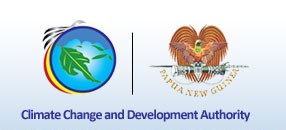Papua New Guinea (PNG) has one of the most…
Papua New Guinea (PNG) has one of the most significant areas of tropical forest in the world. These forests are, however, under threat from commercial logging, clearing of land for agricultural commodities, mining or the expansion of small-scale agriculture to meet the livelihood needs of the country's largely rural population.
This study, commissioned by the Forest Carbon Partnership Facility (FCPF) REDD+ Readiness project, focuses on assessing the business case for enacting a set of policies and measures to reduce the future impact of key agricultural commodities on forest cover in Papua New Guinea, while allowing for ongoing growth within these sectors.
It finds that while PNG has ambitious plans to increase agriculture production through a combination of increased productivity (by 60%) and increase land under cultivation (by 180%) the balance of these approaches vary by commodity. Developments within the cocoa and coffee sectors are focused on improvements in productivity while the palm oil sector is focused on increasing production through expansion of the area under cultivation and represents the most significant threat to levels of forest cover. Indeed, the area under cultivation estimated at 150,000 ha is already set to more than double in the short term based on expansion of existing projects and increase by 10-fold to 1.5 million ha by 2030 according to government plans.
| Field | Value |
|---|---|
| Publisher | PNG Conservation and Environment Protection Authority, PNG Forestry Authority, PNG Department of Agriculture and Livestock, Climate Change and Development Authority in PNG |
| Modified | |
| Release Date | |
| Identifier | 4cb00090-c77c-4b90-b026-9996e937189e |
| Spatial / Geographical Coverage Location | Papua New Guinea |
| Relevant Countries | Papua New Guinea |
| License |
SPREP Public Licence
![[Open Data]](https://assets.okfn.org/images/ok_buttons/od_80x15_blue.png)
|


